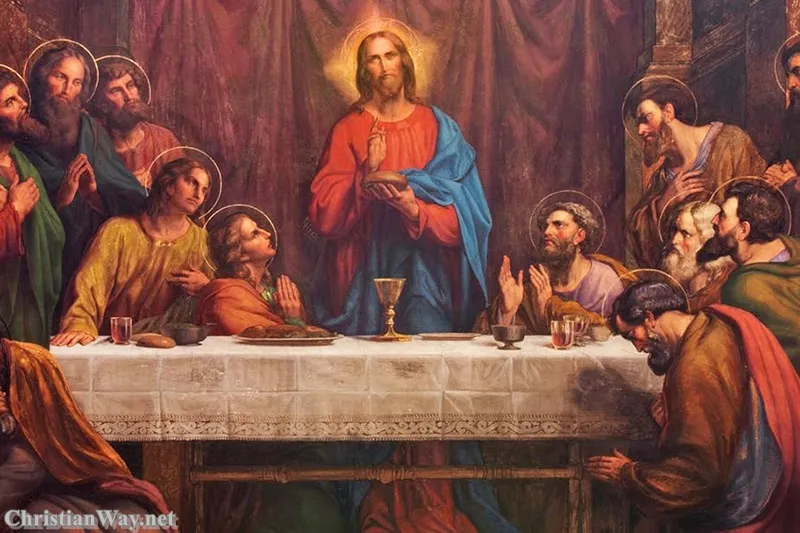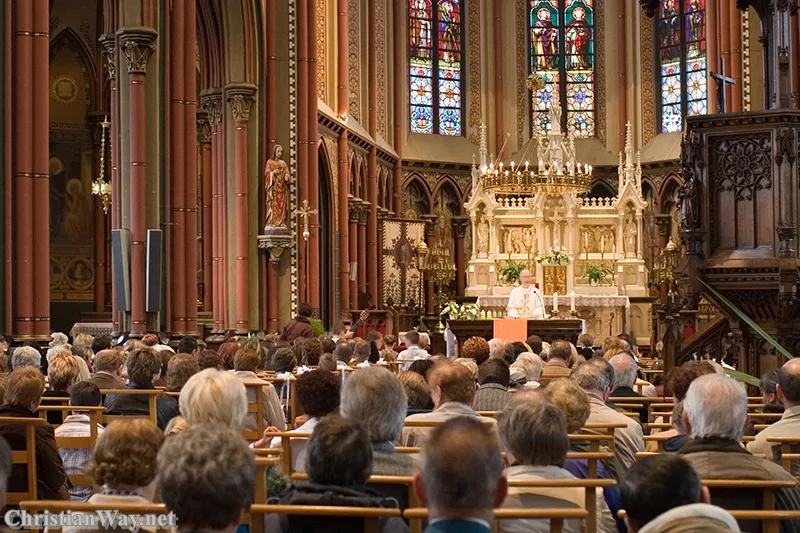Dear friends in Christ,
Every human story begins with a question: Who is Jesus? For some, He is a moral teacher or a prophet; for others, a figure of history or devotion. But to the eyes of faith, Jesus is infinitely more — He is the Son of God, the eternal Word through whom all things were made, who entered our world not as a distant messenger but as God Himself made visible in love.
This truth is not a mere theological claim — it is the beating heart of Christian faith. The mystery that God has a Son and that this Son became one of us transforms everything we know about life, suffering, and hope. To believe in Jesus the Son of God is to believe that God has drawn near, that heaven has stooped down to embrace the earth, and that divine love has taken on a human face.

Let us then walk slowly and prayerfully through this mystery — from Scripture’s revelation to the whisper of the Spirit within our own hearts — that we may not only understand that Jesus is the Son of God, but come to live as those who belong to Him.
The Eternal Son in the Heart of the Trinity
Before time began, before light first shone upon the face of the deep, the Word was with God, and the Word was God (John 1:1). This Word is not a sound or an idea, but a Person — the eternal Son, begotten of the Father, Light from Light, true God from true God.
In the mystery of the Holy Trinity, God is not solitary. The Father eternally loves the Son, and the Son eternally receives and returns that love in the Holy Spirit. From this perfect communion of love flows all creation. As St. Athanasius wrote, “The Father made all things through His Word, and in the Word we behold the Father’s wisdom and glory.”
To call Jesus the Son of God, then, is not to say that He became divine at some point in history, but that He is eternally divine, sharing the Father’s nature before all ages. As the Nicene Creed professes:
“Begotten, not made,
Consubstantial with the Father;
Through Him all things were made.”
When we look at Jesus of Nazareth, we are not merely looking at a holy man; we are beholding the One through whom the stars were spoken into being.
The Son Becomes Flesh
The Gospel of John continues, “And the Word became flesh and dwelt among us” (John 1:14). In those words lies the most astonishing act of love the universe has ever known.
The eternal Son of God, who existed before all things, entered into time, clothing Himself in human nature, not as disguise but as true incarnation. In Jesus Christ, the invisible God became visible, the infinite took on limitation, and the all-powerful chose the vulnerability of an infant’s cry.
He was born of the Virgin Mary, not to dwell above the world but to walk within it — to know hunger, fatigue, friendship, and even betrayal. Every heartbeat of Christ was the rhythm of divine love pulsing within human flesh.
As St. Paul writes to the Philippians:
“Though He was in the form of God,
He did not regard equality with God
as something to be grasped.
Rather, He emptied Himself,
taking the form of a servant,
being born in human likeness.” (Philippians 2:6–7)
This is the humility of the Son of God — not losing His divinity but revealing its true character: love that stoops, serves, and saves.
The Testimony of the Father
Throughout the Gospels, the Father Himself bears witness to the Son. At Jesus’ baptism in the Jordan, the heavens open and a voice declares:
“This is My beloved Son, in whom I am well pleased.” (Matthew 3:17)
Again, on the mountain of Transfiguration, as Christ’s face shines like the sun, the same voice echoes from the cloud:
“This is My beloved Son; listen to Him.” (Mark 9:7)
These moments are not mere symbols; they are divine affirmations that the One standing before us is not a prophet among others, but the Son sent from the Father’s own heart.
The early Church Fathers often saw in these moments a glimpse of the eternal relationship between Father and Son breaking into time. In Jesus, the Father’s eternal Word now speaks in human language; in His eyes, the Father’s compassion looks out upon the world.
The Son Reveals the Father
Jesus often said, “Whoever has seen Me has seen the Father” (John 14:9). This statement is breathtaking. It means that to know what God is like, we need only look at Jesus.
The Son of God reveals that the Father is not distant or wrathful, but merciful, patient, and filled with love. Every healing, every parable, every moment of compassion in the Gospels is the Father’s own heart being revealed through the Son.
When Jesus lifts the broken, forgives the sinner, and welcomes the outcast, He shows us the face of the Father who never stops seeking His children.
As St. Irenaeus wrote, “The glory of God is man fully alive, and the life of man is the vision of God.” In Jesus the Son, humanity and divinity meet so perfectly that to encounter Him is to encounter the very life of God.
The Son’s Obedience and the Cross
The divinity of Christ is not most clearly seen in His miracles or His power, but in His obedience unto death.
On the night before His Passion, Jesus prayed, “Father, not My will, but Yours be done.” (Luke 22:42). Here, the Son reveals the depth of His love — a love that obeys, that trusts, that gives itself completely.
On the Cross, He cries out, “Father, into Your hands I commend My Spirit.” (Luke 23:46). In that final surrender, the Son perfectly fulfills His mission: to reconcile humanity to the Father.
St. John writes, “God so loved the world that He gave His only Son, that whoever believes in Him should not perish but have eternal life.” (John 3:16).
The Cross is not the defeat of the Son of God; it is His glory. In His wounds we see the price of love, and in His resurrection we behold its triumph.
The Resurrection: The Father’s Vindication of the Son
The Resurrection is the Father’s eternal “Yes” to the Son. When Jesus rose from the dead, He was not merely resuscitated — He entered a new and glorified life, beyond death’s reach.
By raising Him, the Father confirmed that Jesus truly is His Son, and that every word He spoke is true. St. Paul declares, “He was declared with power to be the Son of God by His resurrection from the dead.” (Romans 1:4)
The Resurrection reveals that divine sonship conquers sin and death. In Christ, humanity is lifted into the very life of God. What was once estranged is now reconciled; what was mortal is now destined for immortality.
When the risen Christ greets Mary Magdalene with tenderness and calls her by name, when He breathes peace upon His fearful disciples, when He breaks bread with them — the Son of God is still revealing the Father’s heart, now radiant with eternal glory.
The Son of God and Our Adoption
To believe that Jesus is the Son of God is to believe something astonishing about ourselves: that through Him, we too become children of God.
St. Paul writes, “When the fullness of time had come, God sent His Son… so that we might receive adoption as sons.” (Galatians 4:4–5).
In baptism, we are joined to the Son’s own life. We no longer stand as strangers or slaves but as beloved sons and daughters in the Son. His Father becomes our Father; His Spirit becomes our strength; His mission becomes our purpose.
This divine adoption is not a metaphor — it is a real participation in the life of the Trinity. The Son of God became the Son of Man so that we might become children of God.
As St. Augustine beautifully put it: “God has only one Son by nature, but many sons by grace.”
The Son’s Presence in the Church
Even after His Ascension, Jesus the Son of God remains among us — in Word, in Sacrament, and in Spirit.
In the Eucharist, the Son gives Himself to us completely. Every time the priest lifts the host and says, “This is My Body,” it is the Son of God speaking again, offering His eternal life to His brothers and sisters.
In the Scriptures, the living Word continues to reveal the Father. In prayer, the Spirit of the Son cries out within us, “Abba, Father.” (Romans 8:15).
The Church, then, is not merely a human institution but the Body of the Son — the living continuation of His presence in the world. Through the Son, we become what He is: vessels of divine love, bearers of the Father’s mercy.
The Son of God in Our Daily Life
Believing that Jesus is the Son of God is not only a matter of doctrine; it is the foundation for how we live and love.
When we are weary, we remember that the Son of God took on our weakness and walks with us still.
When we are ashamed, we recall that He bore our sins and restores our dignity.
When we suffer, we see in His Cross the promise that no pain is meaningless.
When we doubt, we look to His resurrection and know that love is stronger than death.
To call Jesus the Son of God is to entrust our entire life to Him — to live as those who have been loved from all eternity and redeemed by that love.
Reflect and Pray
The mystery of Jesus the Son of God is not something to solve, but something to adore. It is the mystery of divine love made human, of eternity entering time, of heaven opening its arms to earth.
Take a moment of silence and let this truth dwell in your heart: you are loved by the Father with the same love He has for His Son.
“As the Father has loved Me, so I have loved you. Abide in My love.”
— John 15:9
Let that promise be your strength, your peace, your joy.
And may the Son of God, who became the Son of Man, draw you ever deeper into the embrace of the Father, in the unity of the Holy Spirit.
May the blessing of the Almighty God — the Father, the Son, and the Holy Spirit — be upon you and remain with you always.
— Fr. John Matthew, for Christian Way





